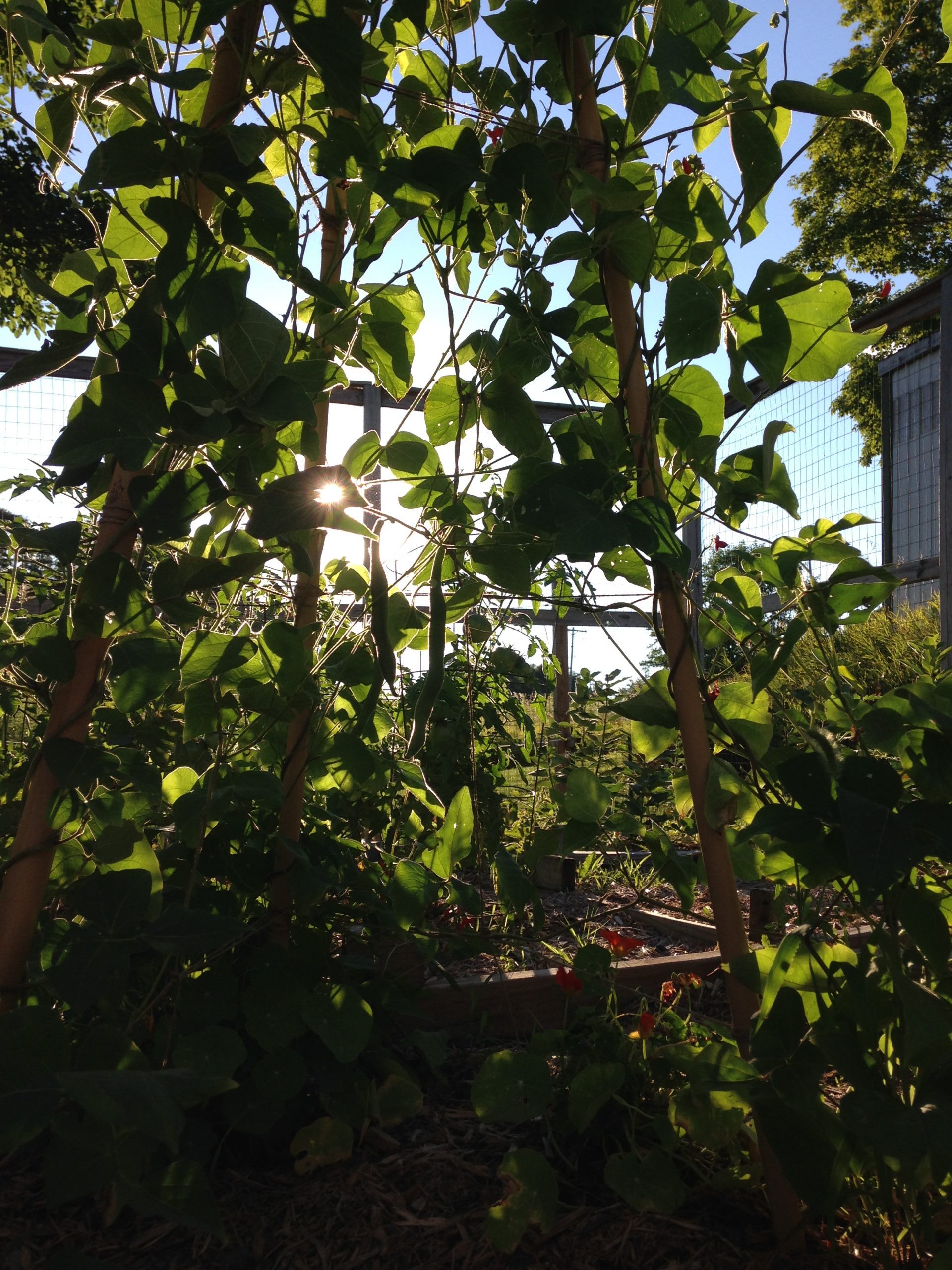
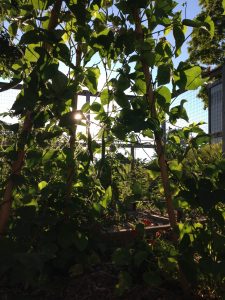 The W.K. Kellogg Biological Station’s K-12 Partnership, in collaboration with MSU University Outreach and Engagement, presents a professional development opportunity for K-12 teachers and educators to build knowledge of Indigenous culture, generational trauma and through cultural sensitivity how we can bring culturally grounded learning strategies to our classrooms. The three-part series will start with a whole group workshop on Oct. 19 and then we’ll divide into Elementary and Middle/High School learning groups for sessions 2 and 3. Each session will be hosted via Zoom from 3:30-5pm EST, participation should be synchronous and interaction is encouraged. Participants should plan to attend all three workshops as well as complete surveys.
The W.K. Kellogg Biological Station’s K-12 Partnership, in collaboration with MSU University Outreach and Engagement, presents a professional development opportunity for K-12 teachers and educators to build knowledge of Indigenous culture, generational trauma and through cultural sensitivity how we can bring culturally grounded learning strategies to our classrooms. The three-part series will start with a whole group workshop on Oct. 19 and then we’ll divide into Elementary and Middle/High School learning groups for sessions 2 and 3. Each session will be hosted via Zoom from 3:30-5pm EST, participation should be synchronous and interaction is encouraged. Participants should plan to attend all three workshops as well as complete surveys.
Who: K-12 teachers and educators (priority will be given to current K-12 Partnership participants) join us for powerful conversations and productive idea creation for your classroom!
We are full! Please contact Kara with questions or to be added to the waiting/next time list!
- Historical context and trauma: Learn about Indigenous history from the initial contact of Europeans in the United States to present day and its contribution to Historical Trauma and Intergenerational Trauma.
– Tuesday, Oct. 19 (All educators!)
- Cultural sensitivity and culturally grounded interactions: What is cultural sensitivity? What are culturally grounded practices? What does acculturation mean? Join us as we dive deeper into these meanings.
– Wednesday, Nov. 3 (Elementary school teachers)
– Wednesday, Nov. 10 (Middle/High school teachers)
- Cultural grounding and classroom strategies: Create a plan for how to apply these practices into your classroom.
– Wednesday Nov 17 (Elementary school teachers)
– Tuesday, Nov. 23 (Middle/High school teachers)
Meet our Presenters & Program Coordinators:
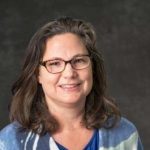 Jessica V. Barnes-Najor, Ph.D., is a developmental psychologist with a specialization in applied developmental science whose work focuses on establishing research partnerships and identifying supports for community engagement in research. Barnes-Najor is a co-investigator for the Tribal Early Childhood Research Center, partnering with American Indian and Alaska Native Head Start, Home Visitation, and Child Care grantees to promote community-engaged research in Michigan and across the nation.
Jessica V. Barnes-Najor, Ph.D., is a developmental psychologist with a specialization in applied developmental science whose work focuses on establishing research partnerships and identifying supports for community engagement in research. Barnes-Najor is a co-investigator for the Tribal Early Childhood Research Center, partnering with American Indian and Alaska Native Head Start, Home Visitation, and Child Care grantees to promote community-engaged research in Michigan and across the nation.
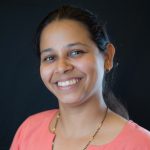 Joelyn de Lima is a biology education researcher and a visiting scientist at Kellogg Biological Station. She has been involved with KBS’s science education and outreach since 2012, and she considers her soul to be part-Michigander. Currently, she is also a pedagogical advisor at EPFL, Switzerland. joelyndelima.com @joelyndelima
Joelyn de Lima is a biology education researcher and a visiting scientist at Kellogg Biological Station. She has been involved with KBS’s science education and outreach since 2012, and she considers her soul to be part-Michigander. Currently, she is also a pedagogical advisor at EPFL, Switzerland. joelyndelima.com @joelyndelima
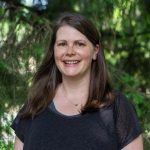 Kara Haas coordinates teacher professional learning opportunities through the K-12 Partnership for the Kellogg Biological Station’s Long-term Ecological Research program. She is also a doctoral student in Curriculum, Instruction and Teacher Education at Michigan State University. Her research interests include interdisciplinary professional learning communities and place-based, outdoor learning experiences. Karahaas.org @KaraHaaSciEd
Kara Haas coordinates teacher professional learning opportunities through the K-12 Partnership for the Kellogg Biological Station’s Long-term Ecological Research program. She is also a doctoral student in Curriculum, Instruction and Teacher Education at Michigan State University. Her research interests include interdisciplinary professional learning communities and place-based, outdoor learning experiences. Karahaas.org @KaraHaaSciEd
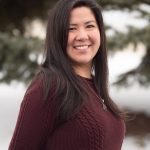 Tamara Kiogima is the Title VI Coordinator for the Harbor Springs Public Schools in Northern Michigan. As the Title VI Coordinator she helps teach Native American Youth about their language, culture and traditions. She serves her Tribe as an elected official for the Little Traverse Bay Bands of Odawa Indians Tribal Council and was recently re-elected for her second term. She is also a graduate student at Michigan State University pursuing her master’s degree in Youth Development. Her research interest include Historical Trauma, Intergenerational Trauma, and ACEs in Native Americans. kiogimat (at) msu.edu
Tamara Kiogima is the Title VI Coordinator for the Harbor Springs Public Schools in Northern Michigan. As the Title VI Coordinator she helps teach Native American Youth about their language, culture and traditions. She serves her Tribe as an elected official for the Little Traverse Bay Bands of Odawa Indians Tribal Council and was recently re-elected for her second term. She is also a graduate student at Michigan State University pursuing her master’s degree in Youth Development. Her research interest include Historical Trauma, Intergenerational Trauma, and ACEs in Native Americans. kiogimat (at) msu.edu
Invited presenters:
Eric Hemenway is an Anishnaabe/Odawa from Cross Village, Michigan. He is the Director of Repatriation, Archives and Records for the Little Traverse Bay Bands of Odawa Indian, a federally recognized tribe in northern Michigan. Eric works to collect and preserve historical information for LTBB Odawa. That information is used to support the LTBB government and create educational materials on Odawa history, such as: exhibits, signage, publications, presentations, curriculums and media. Eric has worked on numerous repatriations of native, human remains under the Native American Graves Protection and Repatriation Act (NAGPRA). He is a former member of the NAGPRA Review Committee and currently sits on boards for the Michigan Historical Commission, Michigan Historical Society, Michigan Humanities Council and Little Traverse Conservancy.
Emily Proctor, MSW, BASW, earned her degrees from Michigan State University – School of Social Work. She is a citizen of the Little Traverse Bay Bands of Odawa Indians (LTBB) Harbor Springs, Michigan, and serves as a Tribal Extension Educator, Community, Food & Environment Institute for Michigan Tribal Nations, Tribal Communities, schools, community partners and various level government with her home office located in LTBB’s homelands, Emmet County, Michigan State University Extension. As the Tribal Extension Educator her projects include the development, delivery, and evaluation of educational programs in the areas of Tribal Governance, Diversity, facilitation and youth leadership. She also is the Project Manager for the Michigan Inter-Tribal Land Grant System (MILES). The MILES is the next step in building the foundation for a seamless, integrated, and intentional Land Grant System in Michigan serving all Michigan Tribal Nations Tribal Colleges, and communities. She currently sits on Tribal Council for LTBB . She has also worked as an Child Protective Services Worker, as an associate Child Welfare Commissioner and was elected three times as LTBB’s Speaker of the Annual Community Meeting. She enjoys making quilts as a way to contribute to her community.
Program sponsors:
Send questions to Kara Haas, karahaas (at) msu.edu
New to the Partnership? We offer professional development in science teaching! Join our mailing list and learn more here.
This program is part of the KBS K-12 Partnership and is funded by the KBS Long-term Ecological Research (LTER), supported by the National Science Foundation.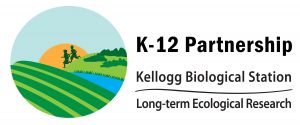
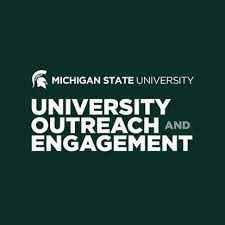


A legacy of conservation; a commitment to sustainability.
3700 E. Gull Lake Drive
Hickory Corners, MI 49060
(269) 671-5117
info@kbs.msu.edu